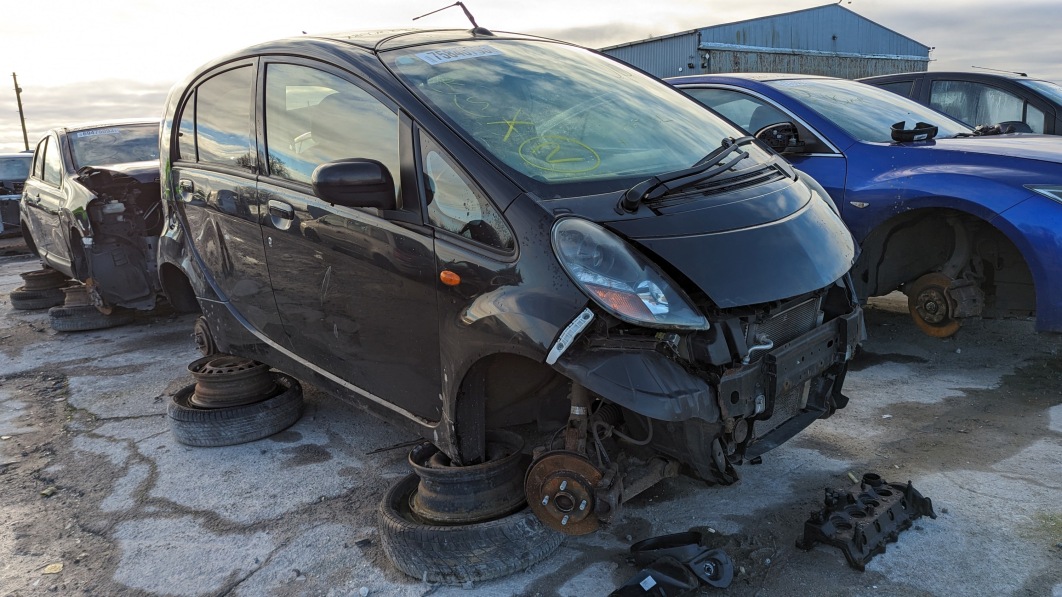YORK, England — The mainstream EV is still a bit too young to be easy to find in the car graveyards I frequent (though I have documented a few, including Toyota’s RAV4-based competitor to the GM EV1), but I remain hopeful that I’ll run across a discarded Mitsubishi i-MiEV during my junkyard travels. This might be difficult, since Mitsubishi sold just over 2,000 examples of the short-range electrified kei car in the United States before discontinuing its sale here in 2016. However, I managed to find one of the i-MiEV’s gasoline-fueled brethren in a knacker’s yard across the Atlantic: a Mitsubishi i.
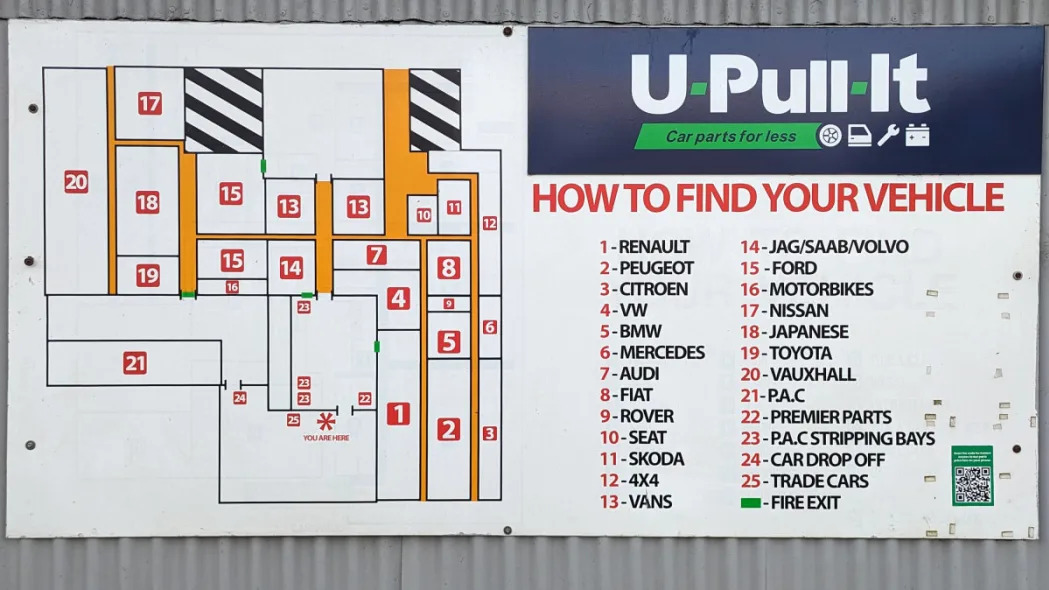
Yes, I traveled to Northern England in January with the primary goal of visiting one of only two American-style self-service scrapyards in Great Britain (that’s what they call them over here): the U-Pull-It in York, which is owned by Dallas-based Copart. You’ll be seeing many interesting discarded vehicles from that all-too-brief trip, so be sure to check in here regularly.
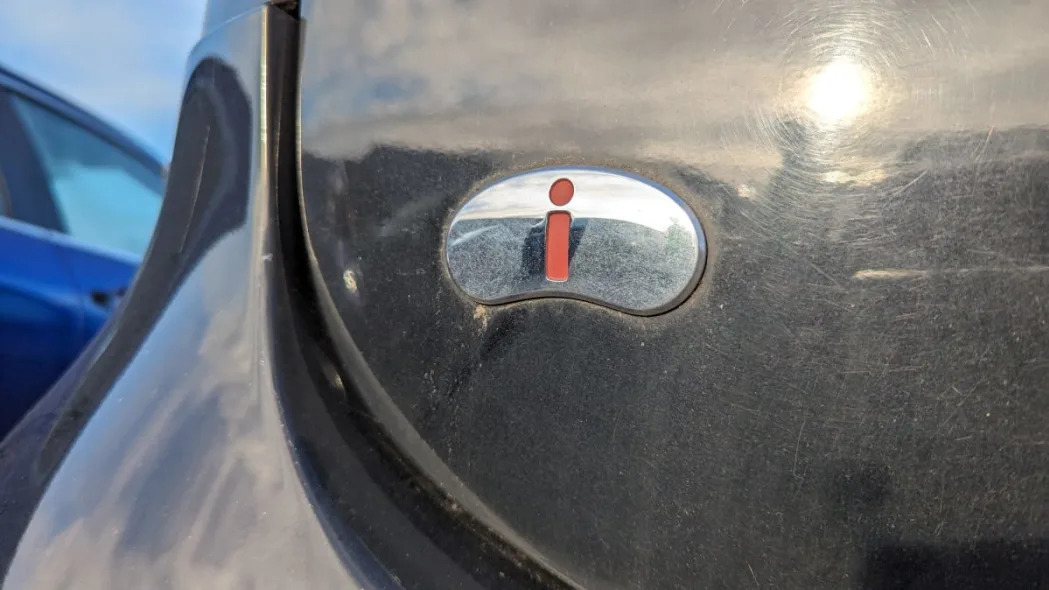
The i (there ought to be an international treaty forbidding the use of a single lower-case letter as the designation for a vehicle model, as well as vehicles with punctuation marks in their names) was built from the 2006 through 2013 model years. Supposedly its name refers to the pronunciation for the Japanese word for “love.” In order to meet kei standards in its homeland, it was fitted with a rear-mounted engine displacing just 0.659 liters.
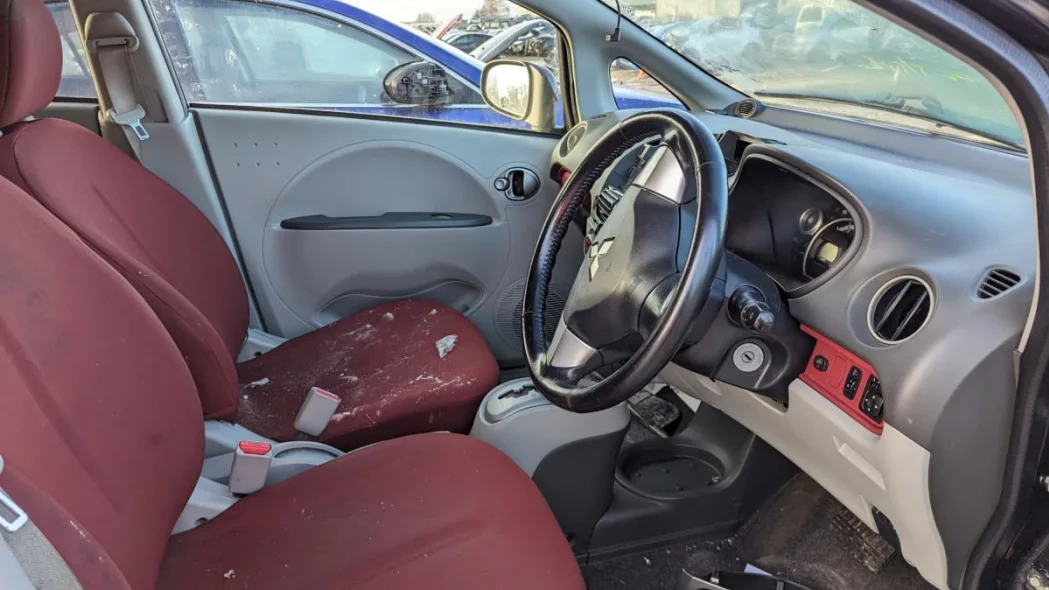
It appears that the internal-combustion-powered i was built only in right-hand-drive configuration, so Mitsubishi limited exports to drive-on-the-left places such as Hong Kong, Singapore and the United Kingdom. The MSRP for a new 2008 i in the UK was £9,084, or about £14,173 after inflation (that’s about $17,992 in 2024 dollars).
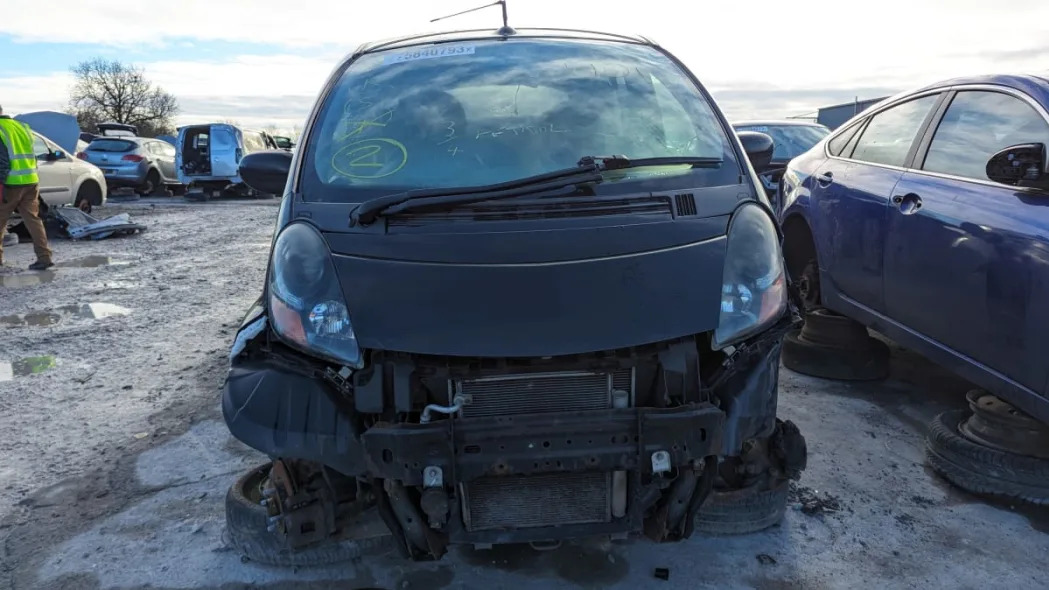
It seems that the i was just too weird-looking and too slow to appeal to many British car shoppers. Today’s Junkyard Scrapyard Gem was one of a mere 303 examples of the Mitsubishi i exported to Europe.
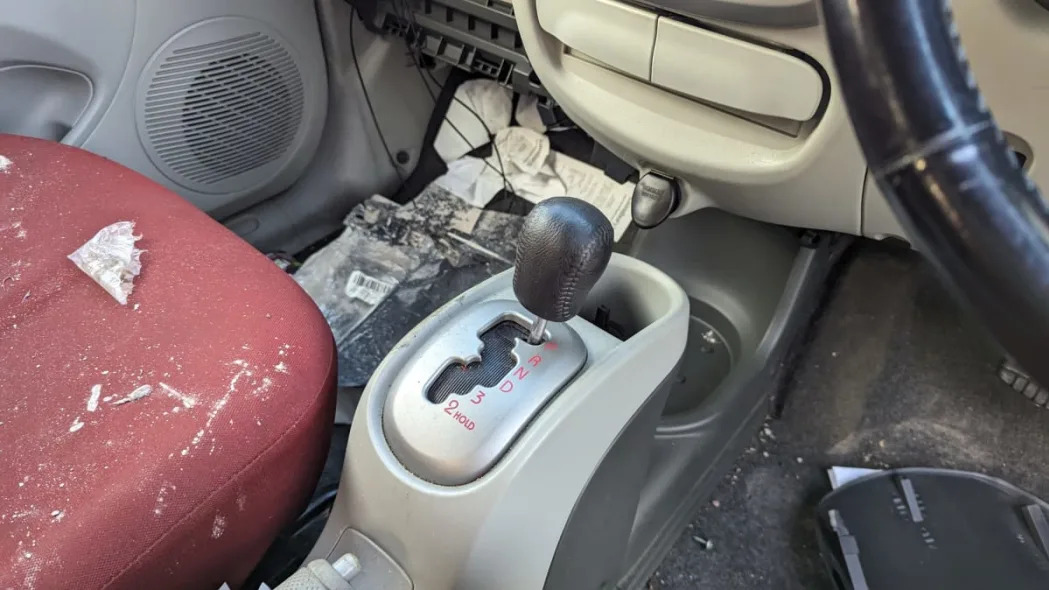
The i was available only with a four-speed automatic transmission.
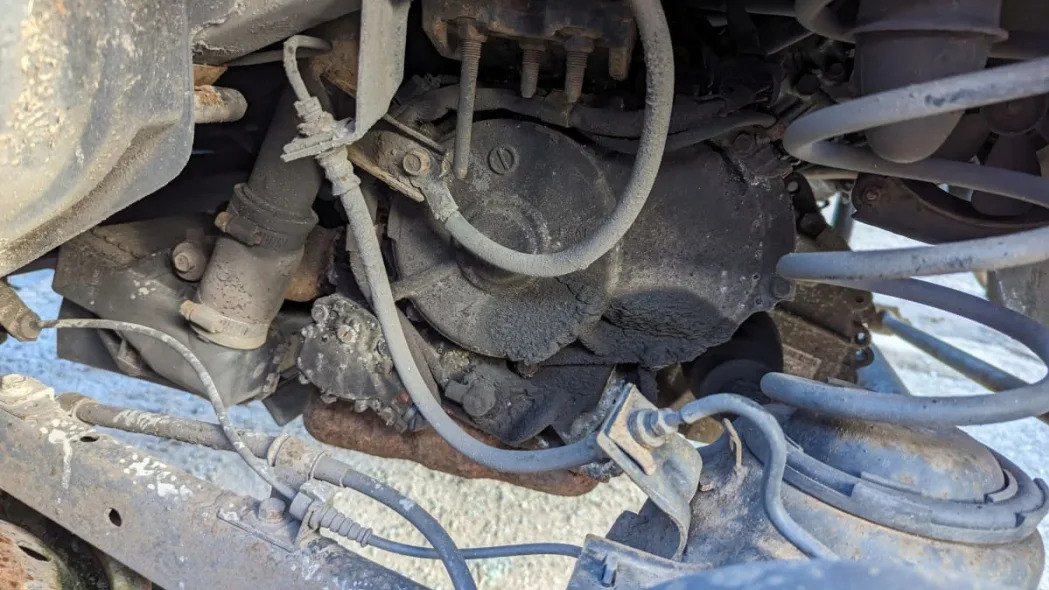
The engine compartment refused to open, and I grew tired of beating up my frozen fingers trying to force it open in the 29°F chill of North Yorkshire on a January morning … so here’s the best shot of the turbocharged DOHC three-banger I was able to get. That’s 63 horsepower on tap, which results in about the same power-to-weight ratio as the 1996 Subaru Sambar Dias II Maleza Super Charger that is my current daily driver in Colorado (it’s on the pokey side but can manage freeway speeds well enough).
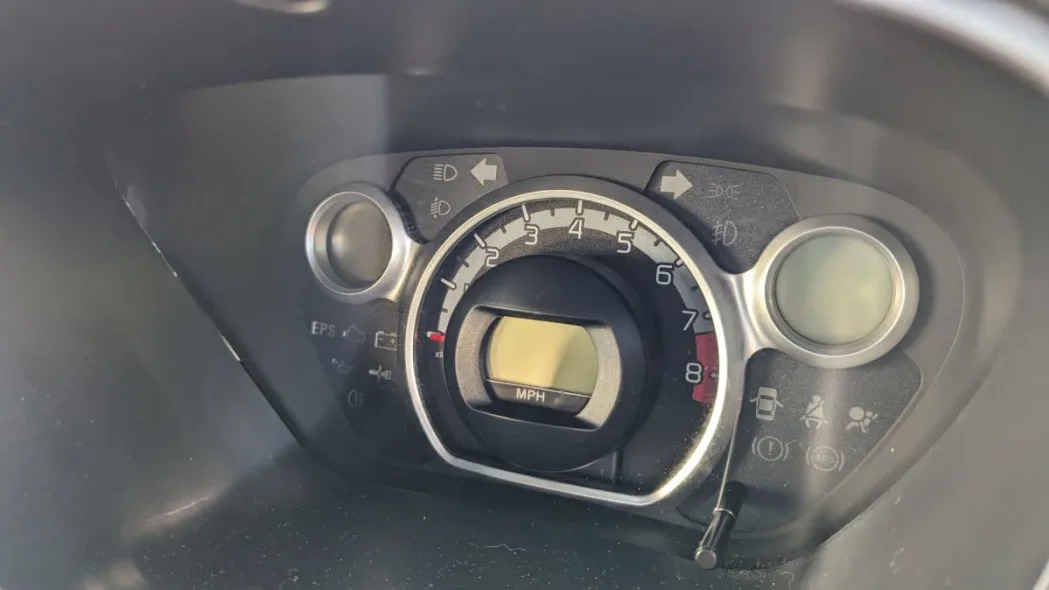
The problem with electronic odometers for your intrepid searcher for high-mile junkyard odometer readings is that you need to power up the vehicle’s ECM in order to display their final readings. Fortunately, the employees of U-Pull-It York are kind enough to shoot photos of gauges with the ignition turned on while processing new arrivals, so we can see that this car had 50,803 miles on the clock when a fender-bender took it off the street.
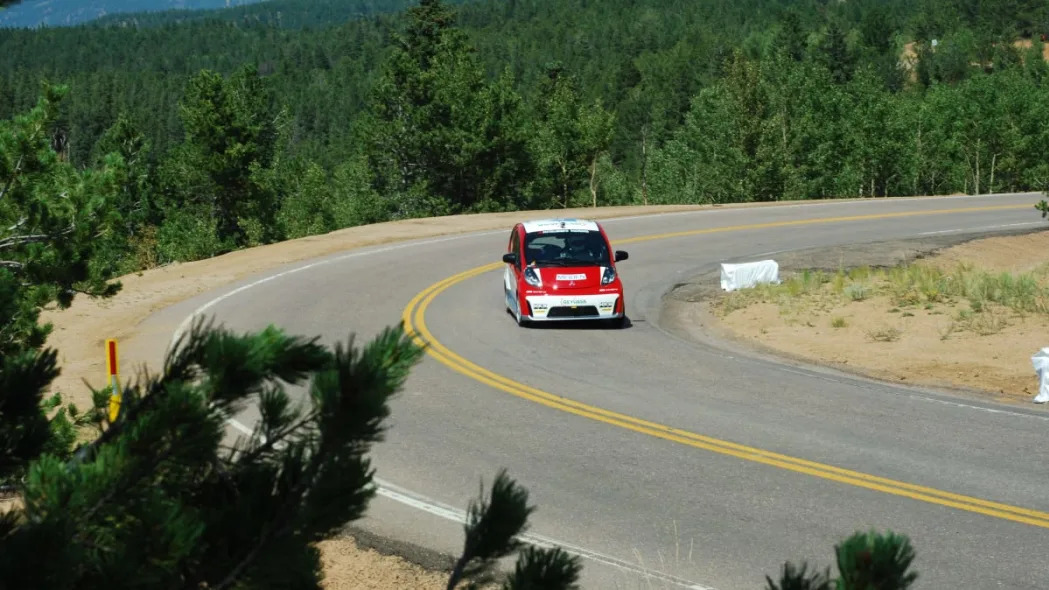
The i-MiEV went into production in 2009, and left-hand-drive versions were built for export. Here’s the one entered by Mitsubishi in the 2012 Pikes Peak International Hill Climb, which was stock except for safety gear (it finished sixth in the Electric Vehicle class, with a time of 15 minutes and 10.557 seconds).
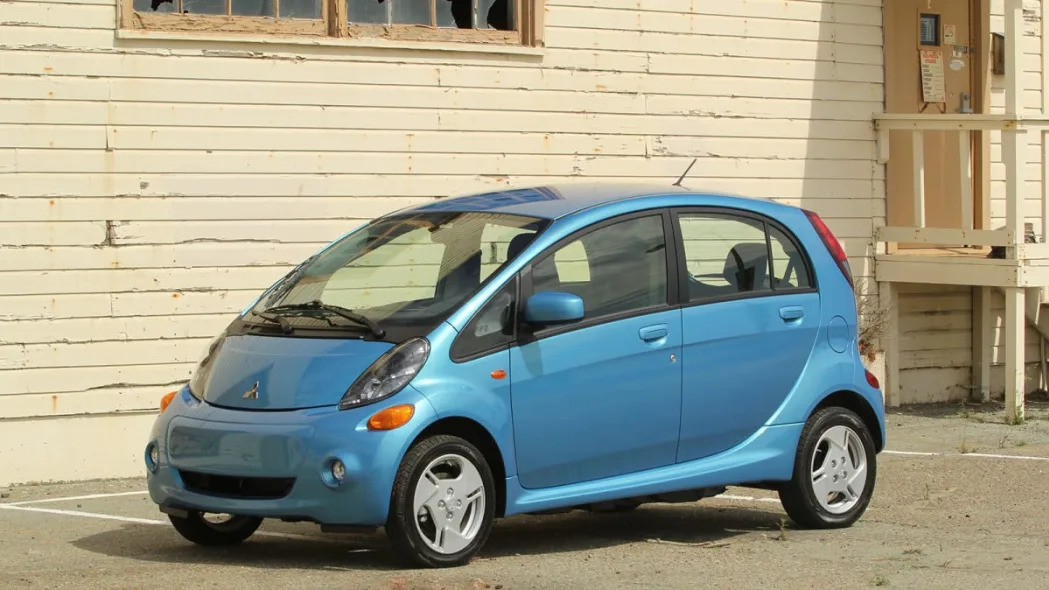
The electron-fueled version of the i remained in production for eight years after curtains for the gas-burner, with nearly 30,000 sold worldwide. It was the innovative i (not to be confused with the hungry i) that opened the door for those cars, so I’m proud to have found an example of this bit of automotive history.
Featuring music by Yumi Matsutoya.
Toyota had emphasized the egg shape of the Estima van (known as the Previa here) in its JDM advertising of a decade earlier, but that didn’t stop Mitsubishi from doing the same with the i.

